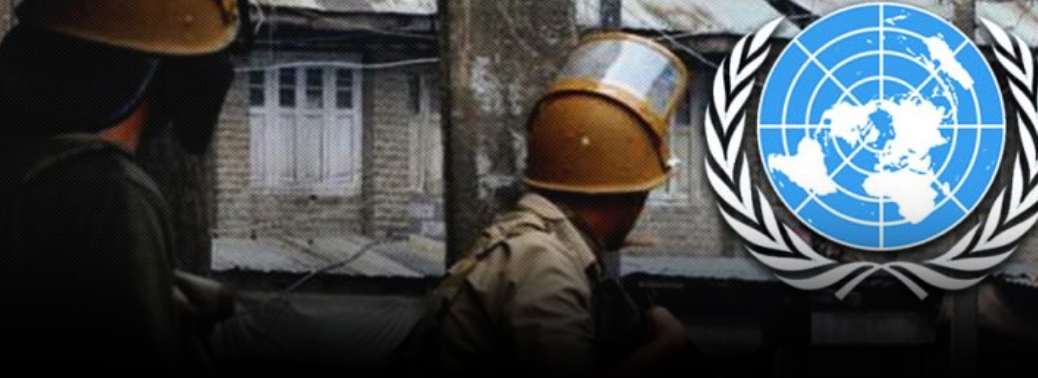INDIA CUTS OFF UN PANEL AFTER JAMMU & KASHMIR REPORT
21, May 2019

Prelims level : IR3E United Nations Organisation
Mains level : GS2S Important International institutions
Why in News:
- The Office of the UN High Commissioner for Human Rights (OHCHR) recently published its first ever report on Jammu and Kashmir including PoK. India reacted angrily to a submission from the Geneva-based Human Rights Council (HRC) on the alleged violations in Jammu and Kashmir.
Details:
- This report has opened up controversies over the territory dispute between India and Pakistan. This report has been in production since 2016, after a new wave of violence hit the Kashmir Valley. India had also rejected the OHCHR’s report on the ‘Situation of Human Rights in Kashmir’ the first-ever such report on Jammu and Kashmir and accused the High Commissioner of Human Rights Zeid Ra’ad Al Hussein of “clear bias” in bringing it out.
Controversies in the report:
- The report has criticised India on how it handled the protests and extra judicial killings, using hard tactics. The report has also used less harsh terms such as armed group and leader of armed group, instead of militant group and terrorist as regarded by the Indian Security Forces. The report has also recommended removal of the Armed Forces (Special Powers) Act for its alleged human rights violations.
Public Safety Act in Jammu and Kashmir:
- The act was brought into effect in 1978, primarily to adopt a tough measure against timber smuggling in the state. It was much later that the act was frequently used to control militancy-related incidents.
- Under this act, the government can declare any area as ‘protected’ and exercise authority to regulate entry of any citizen in the protected area. Attempts to forcefully enter the designated areas invite prosecution.
-
The Public Safety Act gives Jammu & Kashmir government the power to detain anyone who
acts “in any manner prejudicial to the maintenance of public order”. - An individual faces the risk of being detained if he or she is found “promoting, propagating, or attempting to create feelings of enmity or hatred or disharmony on grounds of religion, race, caste and community”. This detention without trial happens under the pretext of maintaining public order.
Amendments made to Public Safety Act
- Pre-trial detention period was reduced from two years to six months.
- The provision for detention of individuals “acting in any manner prejudicial to the maintenance of public law” was made less stringent.
- It introduced the rule that minors (below the age of 18) cannot be detained under the PSA.
Article 370
- Article 370 of the Indian Constitution is a ‘temporary provision’ which grants special autonomous status to Jammu & Kashmir.
- Under Part XXI of the Constitution of India, which deals with “Temporary, Transitional and Special provisions”, the state of Jammu & Kashmir has been accorded special status under Article 370. All the provisions of the Constitution which are applicable to other states are not applicable to J&K.
Important provisions under the article:
- Indian citizens from other states cannot purchase land or property in Jammu & Kashmir.
- Under Article 370, the Centre has no power to declare financial emergency under Article 360 in the state.
- It can declare emergency in the state only in case of war or external aggression. The Union government can therefore not declare emergency on grounds of internal disturbance or imminent danger unless it is made at the request or with the concurrence of the state government.
- Under Article 370, the Indian Parliament cannot increase or reduce the borders of the state. The power to make laws related to preventive detention in Jammu and Kashmir belong to the Legislature of J & K and not the Indian Parliament. Thus, no preventive detention law made in India extends to Jammu & Kashmir.
- Part IV (Directive Principles of the State Policy) and Part IVA (Fundamental Duties) of the Constitution are not applicable to J&K.






